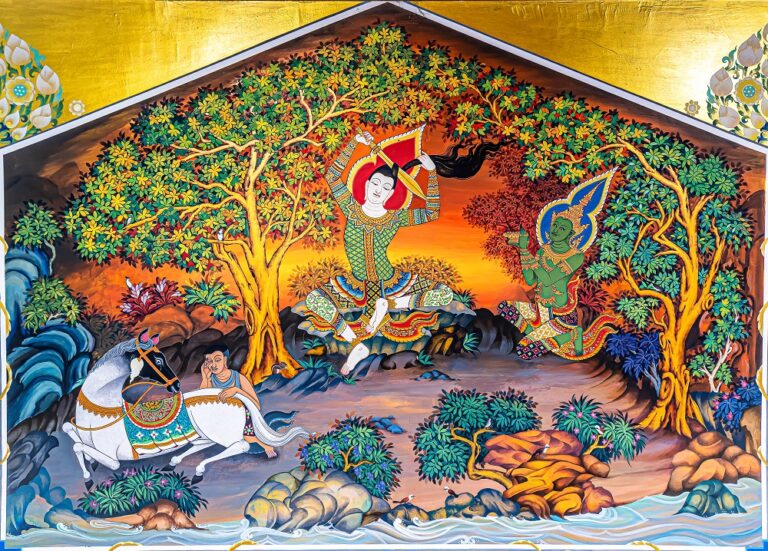
CUTTING HAIR ON THE RIVERBANK
Siddhattha Gotama has reached the River Anoma and stopped on its bank. He asks his horseman, Channa, the name of the river. Channa tells him its name, which means “illustrious.” The future Buddha decides to name his retirement from the world, Anoma.
Siddhattha Gotama spurs his horse to jump over the river. On the opposite bank, he dismounts, ready to renounce the world. He tells Channa to take his royal clothing and horse, Kanthaka, back to the city. Channa tells him that he, too, will retire from the world, and three times Siddhattha Gotama refuses him and tells him to go.
The future Buddha must cut off his long hair and adopt the short hairstyle of a monk. There is no one around to cut his hair for him, so he decides to do it himself. Siddhattha Gotama grasped his sword in his right hand and his hair in his left hand, and cut it off. His hair remained the correct length as long as he lived, and he never had to cut it again.
Then the future Buddha took the cut hair and threw it up into the air, saying, “If I am to become a Buddha, let it stay in the sky, but if not, let it fall to the ground.” The top-knot soared up into the air and stopped. Sakka, the king of the gods, reached out and collected the hair in a golden box.
When this was done, and Siddhattha Gotama had put on the robes of a monk, he told Channa to go home, and tell the King and Queen that he was well.
Channa obeyed the future Buddha, but Kanthaka could not bear the grief of never seeing Siddhattha Gotama again. His heart burst, and he was reborn in heaven as the god Kanthaka. Channa, in turn, was overcome with sorrow at the loss of his master and the death of Kanthaka.